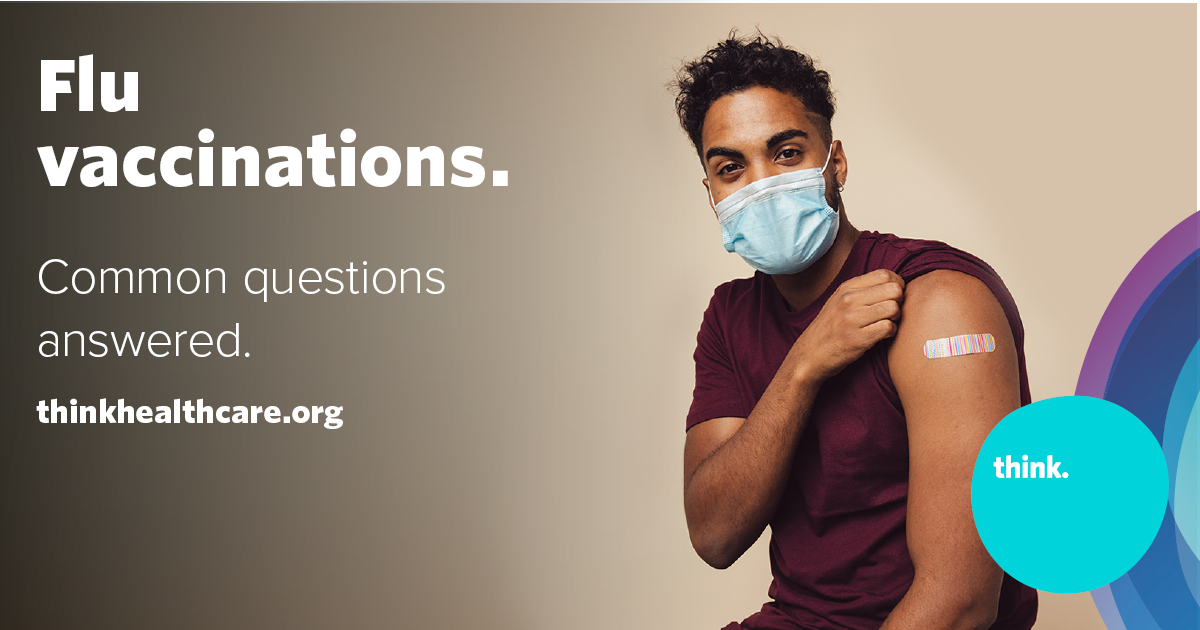Common questions patients ask when deciding on getting a flu shot.
Each year, a new strain of Influenza hits the population. There are 4 types of influenza virus: A, B, C and D. Human Influenza A and B are responsible for our seasonal epidemics which most call “Flu Season” whereas Influenza C is mild and rarely caused flu and D is mostly found in cattle and are not known to affect humans.
One of the best methods to battle the influenza epidemic each year is to administer flu shots. These shots are formulated to help boost antigens for the prevalent influenza strain that season.
Here are some common questions patients have about getting the flu shot.
Who should get a flu shot?
The CDC recommends anyone that’s 6 months or older should get a flu shot. There are different flu shots for different age groups so consult your physician or pharmacist who can recommend the proper vaccine. Pregnant women or folks with chronic health conditions can get the flu shot. Even people with egg allergies can receive the vaccine. Did you know that most flu vaccines are manufactured using chicken eggs?
Can I get the flu from a flu shot?
Contrary to what many believe, you cannot get Influenza from the flu shot. Flu shots are made from inactive viruses or only a partial protein composition. The nasal spray vaccines contain weakened live viruses that cannot cause illness.
You can however experience flu-like symptoms from other germs and viruses circulating through our population. These similar symptoms are oftentimes misinterpreted as influenza hence adding to the misinformation about flu shots causing the flu.
I had a flu shot last year. Do I really need another one?
Yes! Between the flu virus changing often and your body’s immune protection weakening over time, getting an annual vaccine will help keep your body protected.
What about allergic reactions?
Allergic reactions to flu shots are rare.
Should I wait to get my flu shot until after my COVID booster?
The CDC and FDA just approved Pfizer vaccines for use as a third dose therapy for immunocompromised patients. Additionally, they approved not having to have a wait period between the vaccinations. So, you don’t have to wait!
Isn’t the flu better than getting the flu shot?
No. There are risks associated with getting the flu not to mention being out of commission for 7-10 days. Influenza is a serious disease and should not be taken lightly—especially if you are older or have existing health conditions. And even if you are healthy and younger, you are still at risk of having complications and possible hospitalization from the flu.
When should I get my flu shot?
Some people like to wait until late October or November to get their flu shot so the vaccination can carry them through March-April. It’s advisable to not wait. However, consult your physician to explore what is the best timing for your specific healthcare needs.
Why is it so important to get the flu shot this year?
Since the effectiveness of the flu shot tends to lessen after a period, annual vaccinations are important to maintain immunity. Additionally, each year, the flu vaccination is altered to combat the more popular strains for that flu season. In 2020, during the pandemic, many people chose not to get a flu shot because they were socially isolating. In addition to limiting their contact with others, folks practiced better handwashing and wore masks–further limiting the opportunity to contract Influenza. The combination of skipping a flu shot and limiting the exposure (not getting the flu) made people’s immunities for Influenza weak. What this means is this year, our flu season could be severe and getting your flu shot is more important now than ever.
How do they know what flu strain is prevalent each year?
Did you know 144 countries cooperatively work on identifying prevalent flu strains each year? Twice a year the World Health Organization (WHO) assembles a panel of constituents who review enormous amounts of data collected from patients and determine which Influenza profile is most apt to be problematic. From these findings the pane makes recommendations on the composition of the season’s Influenza vaccination.
What happens when the anticipated flu virus is identified?
Once the WHO panel makes their recommendations, private sector pharmaceutical companies commence the manufacturing of the flu vaccine. There are two methods to manufacture the vaccine.
- Use egg cell technology and cultivate the antigen from chicken eggs. This process has been in use for more than 70 years!
- Cell-based technology is an alternative to Chicken Egg cultivation. It’s a bit more flexible and uses a cell-based candidate virus vaccine.
It takes up to six months to manufacture an adequate supply of vaccines so many companies will hedge their bets and begin producing vaccines anticipating the recommendations of WHO. This approach enables consumers to have access to vaccinations much early in the flu season.
If you don’t know if you should get one, talk with your doctor or provider about your concerns. Otherwise, it’s time to get your flu vaccinations now. Think Whole Person Healthcare has no-appointment/walk-in vaccinations during flu season or any other times through our thinkquick walk-in clinic, through your provider, or from 8 am to 3 pm, Monday – Friday in a vaccine clinic.
